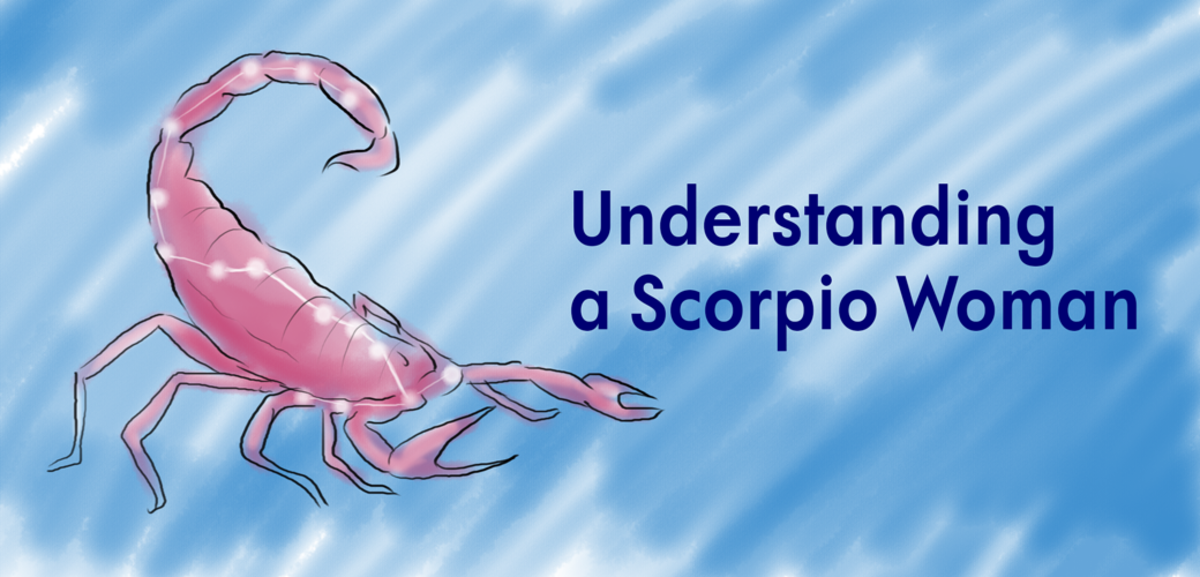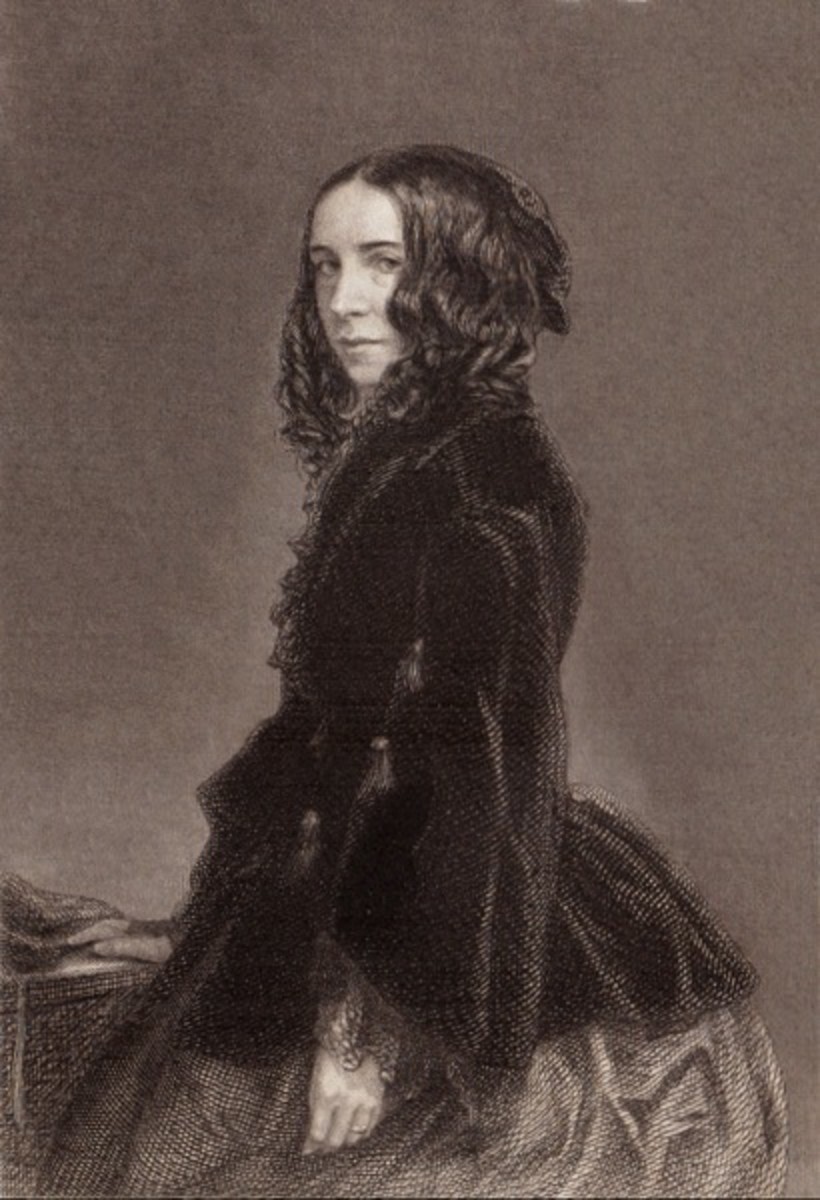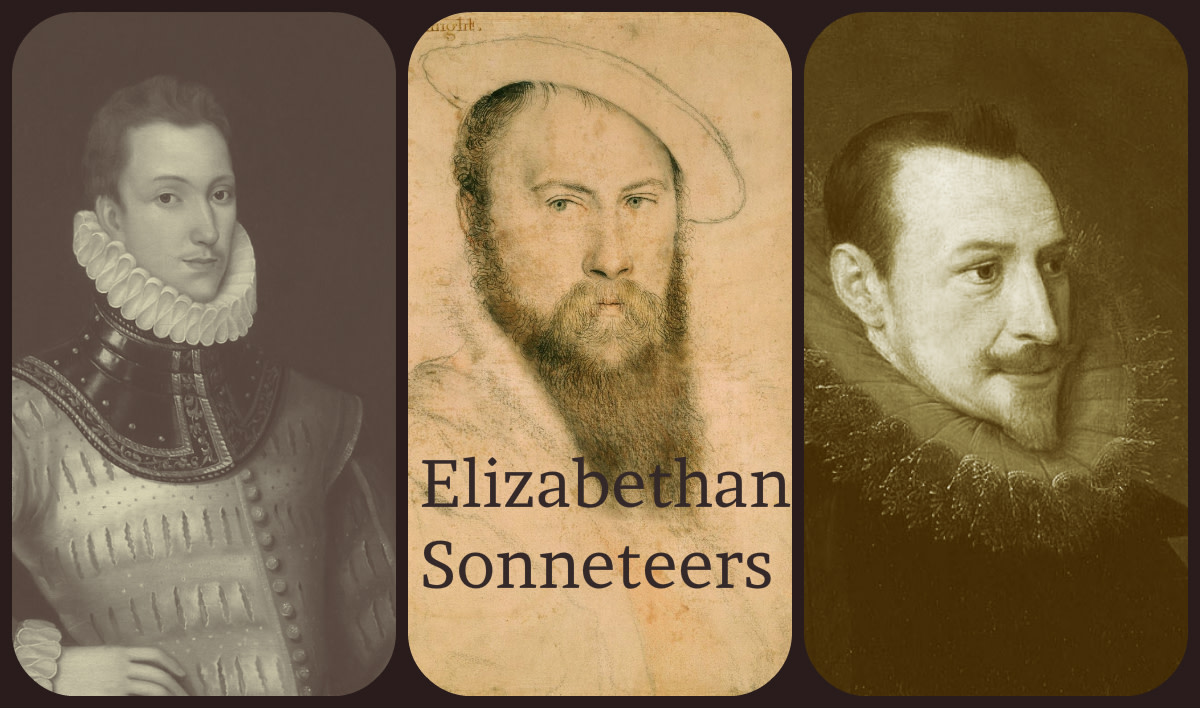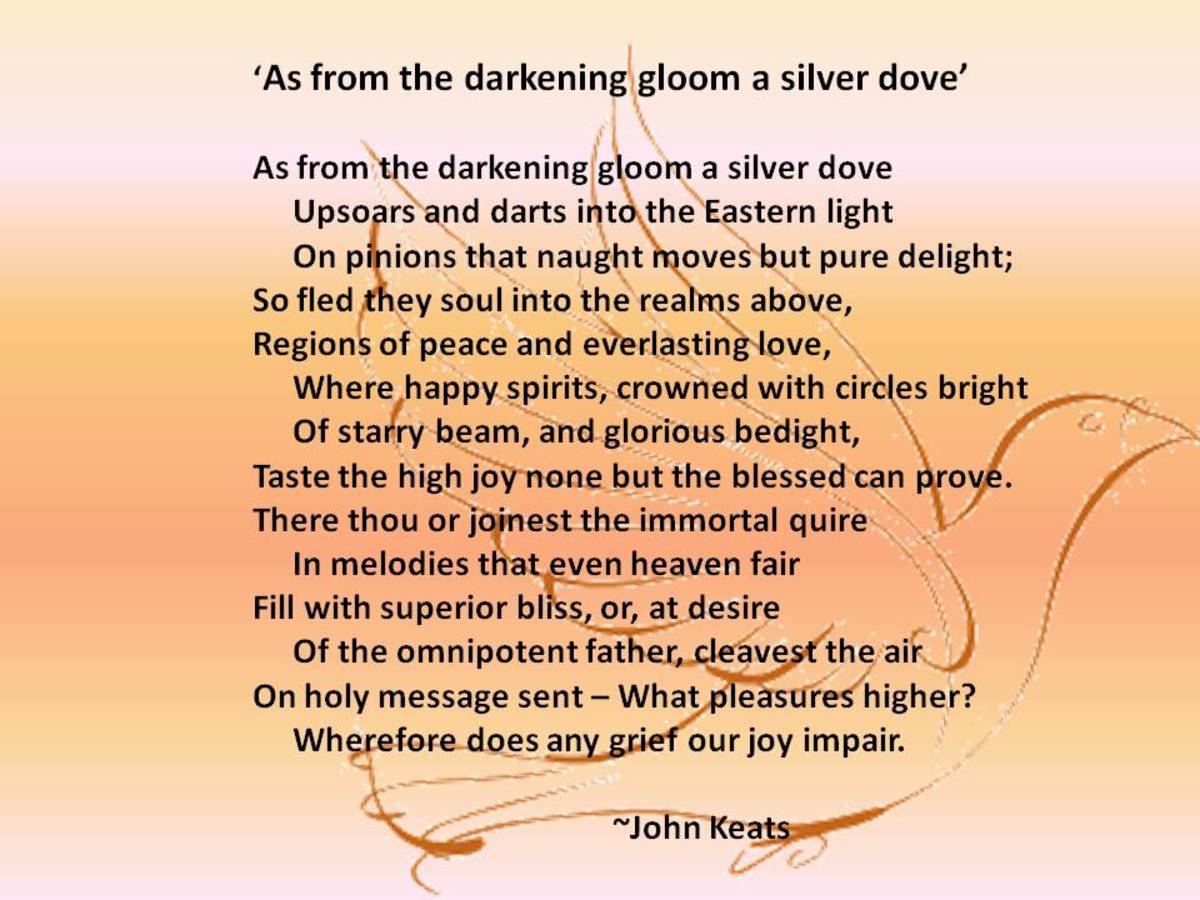Elizabeth Barrett Browning: A Woman for All Seasons.
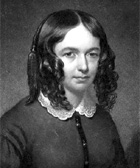
This gloriously intelligent and passionate woman, of olive hues and dark, abundant hair, of flashing poetic genius, was born March 6, 1806, in Durham, England...An avid reader, by age 10 she had devoured Shakespeare and Milton...By age 12 she had written her first "epic" poem, which consisted of four books of rhyming couplets.
As a teenager, Elizabeth taught herself Hebrew so she could read the Old Testament in the original. Her interests later turned to the Greek classics, prompting her to learn that language as well. If she had been aware of the haiku form I'm sure she would have taught herself Japanese, such were the language skills of this brilliant woman. Accompanying her appetite for the classics was a passionate enthusiasm for her Christian faith. She became active in the Bible and Missionary Societies of her church.
In 1826 Elizabeth anonymously published her collection An Essay on Mind and Other Poems. Later, Elizabeth published her famous translation of Prometheus Bound (1833), which gained the positive attention of .writers and critics throughout Europe, including George Sand, with whom she exchanged numerous letters...Over the next 5 years she wrote The Seraphim and Other Poems (1838), written in the form of classical Greek tragedy. She was now considered a major player in English literature circles. Some even suggesting she become the next Poet Laureate after Wordsworth.
Due to her weakening disposition arising from a childhood bout with tuberculosis, she was forced to spend a year at the sea of Torquay accompanied by her beloved younger brother Edward, whom she referred to as "Bro." Tragically, he drowned later that year while sailing at Torquay. When Elizabeth returned home she retreated to her bedroom where she resided for the next 5 years. emotionally broken, invalid, and inconsolable. It was during this period that she wrote vicariously of love, as in her " Lady Geraldine's Courtship " poem. That vicarious love was soon to blossom into real love and change her life.
In 1844 she produced a collection entitled simply "Poems ". Shortly after publication an exchange of letters developed between Elizabeth and the English poet Robert Browning, whom Elizabeth had praised in one of her poems, Over the next 2 years they exchanged some 574 letters These letters are reproduced in a book available at Amazon ( http://www.amazon.com/Selected-Elizabeth-Barett-Browning-Fyfield/dp/0415967252/ref=sr_1_1?ie=UTF8&s=books&qid=1305662073&sr=1-1 )..They are a fascinating read that allows us to peek into their private thoughts and expressions of a high romance.
Over the objections of her tyrannical father, who bitterly opposed any of his children getting married, the couple eloped in 1846 and settled in Florence, Italy. The union quickly produced a son, Robert Wiedemann Browning.
In 1850 her " Sonnets from the Portuguese " were published. These were composed during her courtship with Robert Browning and owes its title to the endearment he had for her. He often referred to her as his " little Portuguese " due her dark hair and complexion which she inherited from her Creole forebears. The Barrett family had made their fortunes for centuries as owners of sugar plantations using slave labor in Jamaica. Elizabeth was the first Barrett to be born in England. Later in life she would write passionately against slavery and other social issues, including women's rights, child labor, and Italian politics.
Critics generally consider the Sonnets to be her best work. They are one of the most widely known collections of love lyrics in English. The most oft quoted poem from this collection is " How do I Love Thee? Let me count the ways...".,Admirers have compared her imagery to Shakespeare and her use of the Italian form to Petrarch.
The example of successful novelists like the Bronte sisters, Jane Austen, and George Sand provoked women to rebel in the late Victorian period and demand a wider variety of opportunities.
Browning's Aurora Leigh ( 1857 ) is an experiment in a new poetic form, the verse novel, and has as its subject matter those things that were issues of the day for Victorian women.. It became one of the longest poems in the English language in its number of lines. Browning thought it her most mature work, and it turned out to be her biggest commercial success. Aurora Leigh deals with some of the major social problems of her age, particularly the difficulty of being a professional woman in the Victorian Age..
The poem also reveals a distrust of socialist theory, in that Browning feared that communist-style communities would exclude artists and poets. I wonder what would have been the course of a conversation between Elizabeth and Ayn Rand.
Elizabeth Barrett Browning died at home in Florence, Italy, on June 29, 1861.
For those interested in reading her prose and poetry I have added an Amazon capsule at the bottom. I leave you with this favorite snippet from her Sonnets :
XXXVIII
First time he kissed me, he but only kissed
The fingers of this hand wherewith I write;
And ever since, it grew more clean and white.
Slow to world-greetings, quick with its "O, list,"
When the angels speak. A ring of amethyst
I could not wear here, plainer to my sight,
Than that first kiss....
Copyright Larry L. Conners 2011




